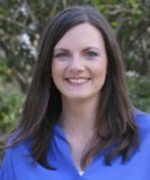Originally published Tuesday, 24 March 2015.
My husband's staff team at church did a personality assessment this past week as part of a retreat day. His was confirmed as what I always knew (ISTJ) and what is exactly opposite of me (ENFP). The old adage, "opposites attract," is proven true in our marriage. But that will be for another post.
The personality test stirred up my age-old frustration with who am I really? For although I tested as an "extrovert," I have many introverted tendencies (and was just about equal on the two, with a slight preference for extroversion). It's been suggested that I am what is termed "ambivert," which is a combination of both. I would describe myself as an extroverted introvert, or an introverted extrovert. I've always enjoyed time alone to recharge, but then at the end of solitude, I've enjoyed nothing better than being in a group of friends or at a party. But after a day (like yesterday) of non-stop people time, I feel exhausted and in need of the comfort of a quiet activity - preferably reading a good novel, or writing, or painting, or some sort of solitary engagement.
I am also a writer. Writers are usually known as the quintessential introverts. It's commonly thought that to do the best writing, you should be the most alone. When one has young children at home, and you're trying to write a book for Crossway by September 1 (for example), there is great wisdom in that - and it's true. So my husband sent me off on a 48-hour writing retreat last week, and it was blissful. I wrote to my heart's content in perfect solitude. I took breaks in between finishing a chapter, and then I would go back for more writing. It was such a gift to my distraction-prone brain to be able to pick up exactly where I left off - without the intervening (normal) interruptions of finding that one lost princess shoe, or making sure that I started dinner on time, or answering the urgent work email/text.
And yet I found something interesting about the time away. First of all, it took me the entire first evening before I could write. I had to clear my brain of life's distractions that accompanied me. To put to rest a few emails, and to call my mind back from all the places it scatters to in the normal course of life. Secondly, when I did begin to write, the first two-thirds of the day were prolific. I wrote more than what I had expected I could. But then - almost imperceptibly - I slowed down. The words began to drag. I was running out of steam by around 5pm of my big writing day.
My writing mentor is currently Brenda Ueland, author of the 1938 classic, If You Want To Write. And she made sense of this experience:
I have come to think that there is irony in the lives of writers who sit at a desk always, tenderly or crossly protecting themselves from all disturbances, danger or uncomfortableness, so that they can work out a better literary style. ... Instead of living a sedentary, literary life, assiduously polishing sentences and cultivating a prose style, he [T.E. Lawrence] lived a great life with supernatural standards for himself of courage, suffering, endurance and honor.
In summary, Ueland says that to be a great writer, you must be fully living a life outside of your writing. She proposes that your writing can only be as engaging and courageous as your life is. So perhaps motherhood is perfectly suited for writing, instead of opposed to it. And perhaps it's not only ambiverts like me who need both total solitude and engaging company. Doesn't a life lived thoughtfully and fully require both?
Heather Davis Nelson, M.A., is a writer, counselor, and retreat speaker, regularly blogging at "hidden glory" (heatherdavisnelson.com). She has been a featured writer at The Gospel Coalition, iBelieve.com, and OnFaith with articles on grief, human trafficking, body image, and mentoring, as well as a contributing author to the Journal of Biblical Counseling. She and her husband, Seth, and their fraternal twin daughters live in southeastern Virginia where he is a pastor, and she is a counselor. She studied at Wheaton College (B.A.) and Westminster Theological Seminary (M.A.). She loves coffee, reading, front porch conversations, the beach, and story time with her daughters. Through over eight years of counseling, she has walked alongside many through questions of faith, anxiety and depression, relational conflict, grief, and discovering identity and calling. She is passionate about connecting the hope of a Redeemer to the broken fissures of life.








